Description
- Tribulus (Tribulus terrestris)(aerial) 300 mg [standardized to contain 40% steroidal saponins]
- Chrysin 200 mg
- Ginkgo (Ginkgo biloba)(leaf) 100 mg [standardized to contain 24% ginkgo flavonglycosides and 62% terpene lactones]
- DIM (Diindolylmethane) 100 mg
- Tongkat ali (Eurycoma longifolia)(root) 100 mg [standardized to contain 1% eurycomanone]
- Horny Goat Weed (Epimedium grandiflorum maxim) 100 mg (aerial)[standardized to contain 20% icariins]
- Boron (as Bororganic Glycine)
- Other Ingredients: Cellulose (capsule), microcrystalline cellulose, sunflower lecithin, silicon dioxide, vegetable stearate.
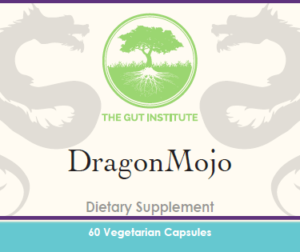

Special adaptogenic formula to combat modern stressors, support the HPA-thyroid axis, protect against excess pro-inflammatory estrogens and support endurance and energy
Tribulus (Tribulus terrestris) has long been used in the traditional Chinese and Indian systems of medicine and is popularly claimed to improve sexual function. Tribulus has favorable effects on the microbiome and antifungal activity against pathogenic yeasts. Tribulus increases some of the sex hormones, possibly due to the presence of the steroidal saponin protodioscin. After oral ingestion of Tribulus, testosterone, dihydrotestosterone (DHT) and DHEA-S (DHEA sulfate) have all been shown to increase significantly. DHEA can also convert into testosterone. It is concluded that Tribulus extract appears to possess aphrodisiac activity, most likely due to its androgen-increasing property.
DIM Diindolylmethane Plant indoles, also called glucosinolates, found in cruciferous vegetables provide health benefits to humans. Cruciferous vegetables are known for their cancer protection. Two such indoles provided by cruciferous vegetables are I3C (Indole-3- Carbinol) and DIM (Diindolylmethane). DIM is not naturally present in these plants. It gets released with the help of enzymes upon crushing of the broccoli, cauliflower, cabbage or brussel sprouts or during human digestion. Stomach acid, or HCl, can also aid the joining of two indole 3 carbinols to make diindolylmethane. Lack of HCl will hinder one’s ability to make DIM from I3C. Basically, DIM is two molecules of I3C combined together. I3C in a capsule is not shelf stable because it is sensitive to light, heat and moisture. I3C is irritating to the stomach and research tells us that it can have very negative side effects in doses over 300 mg daily such as dizziness and unsteady gait which may be due to nervous system toxicity. One study shows evidence that 90% of orally consumed I3C converts to other compounds. Perhaps it is these other compounds that cause these side effects. One compound I3C converts to is ICZ, or indolocarbazole. This compound causes DNA damage. DIM studies show no toxicity when given triple the dose in humans.
DIM and Hormone Balance Both women and men produce many different forms of estrogen. Research suggests that the ratio of two specific forms – 2 hydroxy estrogen and 16 hydroxy estrogen – is important for optimal health. DIM helps support a more optimal balance of these two estrogens, thereby providing a protective effect on the body. DIM also acts as an ‘aromatase inhibitor’ – meaning it can block some testosterone from converting to estrogen, making more testosterone available in the body. This could have a positive influence on sexual desire and athletic performance in both men and women.
It has been suggested that a low level of the 2-hydroxyestrone metabolites (2-OHE) and a high level of 16 alpha-hydroxyestrone (16 alpha-OHE1) is associated with an enhanced risk of breast cancer. DIM increases 2 hydroxyestrone and therefore improves the 2/16 hydroxyestrone ratio, making it very protective for women at high risk for this condition.6 Research by Bradlow says that DIM also reduces availability of 4-androstenedione for aromatization to estrone.7 He concludes that DIM is more potent than I3C at protecting against mammary carcinoma due to decreased formation of 16 alpha-hydroxyestrone from estrone.
DIM: Should We Just Eat Cruciferous Vegetables? Eating two pounds of cruciferous vegetables like raw cabbage or broccoli can ultimately supply, via I3C conversion into DIM, about 20-30 mg of DIM. Therefore, supplementation is ideal along with consuming cruciferous vegetables.
What Does DIM Do? Research clearly shows that 4 hydroxy estrogen and 16 hydroxy estrogen are not favorable when elevated. Many doctors are now performing clinical tests on their patients to screen for risk of breast cancer. Low risk for breast cancer is marked by a high 2/16 ratio (2 hydroxy to 16 hydroxy estrogen). It is clearly established by research that DIM raises the 2/16 ratio without elevating 4 hydroxy estrogen. DIM helps men too because it is an aromatase inhibitor. DIM helps to block the conversion of testosterone to estrogen.10 Regarding dosing, I3C needs to be given at 3-4 times the dosage of DIM to provide the same positive benefits. (Note: 300-400 mg I3C as compared to 60-100 mg DIM). I3C in low doses, like the amounts found in cruciferous vegetables is safe. I3C ingested at higher doses needed to shift estrogen ratios may be problematic.
Benefits of DIM
- Helps maintain beneficial ratio of 2 hydroxy estrogen to 16 hydroxy estrogen (also known as a higher ‘2/16 ratio’)
- Supports healthy balance of testosterone and estrogen
- Supports improved “estrogen dominance”
- Provides antioxidant properties. DIM has been shown to help protect cells in the body from the damaging effects of oxidation.
- Has none of the side effects associated with I3C
Tongkat ali (Eurycoma longifolia) is a Southeast Asian plant also known as “Malaysian ginseng,” which helps support healthy ant-inflammatory testosterone levels and may help bolster occasionally low libido while also supporting a healthy response to stress via reduced cortisol levels. Eurycoma supports desire and fertility, as well as mood and energy.
Tongkat ali works by affecting the Luteinizing Hormone, and is very specific as to which hormone derivatives it affects. It works to increase testosterone, but not 5a-dihydrotestosterone, which could cause aromatization (conversion) to estrogen. DHT is associated with inflammatory disorders such as hair loss in both men and women, cancers and endocrine disorders (PCOS, endometriosis, cysts, fibroids in women; benign prostate hypertrophy and male pattern baldness in men). It also helps to increase free testosterone (FT) over bound testosterone (BT), a notable difference because BT are not bioavailable and in high levels may be associated with prostate cancer.
Additional Highlights:
- Epimedium sagittatum – used for longevity and immortality formulas in the imperial court for millenia in TCM, as it possesses potent anti-inflammatory and hormone-regulating properties
- Chrysin – extracted from passion flower, supports an anti-inflammatory health status by influencing aromatase activity and reducing the potential of progesterone or testosterone being converted to excess pro-inflammatory estrogen
- Ginkgo biloba – provides improved blood flow for brain clarity, anti-inflammatory benefits, enhanced performance and enjoyment
- Boron – may be helpful for increasing the conversion of total testosterone to free testosterone and decreasing estradiol (E2) levels, thereby raising the ratio of FT to both total testosterone and E2.
*Made with non-GMO ingredients.
CITATIONS:
-
Zhang JD, Cao YB, Xu Z, Sun HH, An MM, Yan L, Chen HS, Gao PH, Wang Y, Jia XM, Jiang YY. In vitro and in vivo antifungal activities of the eight steroid saponins from Tribulus terrestris L. with potent activity against fluconazole-resistant fungal pathogens. Biol Pharm Bull. 2005 Dec;28(12):2211-5.
-
Zhang JD, Xu Z, Cao YB, Chen HS, Yan L, An MM, Gao PH, Wang Y, Jia XM, Jiang YY. Antifungal activities and action mechanisms of compounds from Tribulus terrestris L. J Ethnopharmacol. 2006 Jan 3;103(1):76-84.
-
Al-Bayati FA, Al-Mola HF. Antibacterial and antifungal activities of different parts of Tribulus terrestris L. growing in Iraq. J Zhejiang Univ Sci B. 2008 Feb;9(2):154-9.
-
Monteiro R, Azevedo I, Calhau C. Modulation of aromatase activity by diet polyphenolic compounds. J Agric Food Chem. 2006 May 17;54(10):3535-40.
-
Kellis JT Jr, Vickery LE. Inhibition of human estrogen synthetase (aromatase) by flavones. Science. 1984 Sep 7;225(4666):1032-4.
-
Johnson IT. Glucosinolates: bioavailability and importance to health. Int J Vitam Nutr Res. 2002 Jan;72(1):26-31.
-
McDanell R, McLean AE, Hanley AB, Heaney RK, Fenwick GR. Chemical and biological properties of indole glucosinolates. J Agric Food Chem. 1999 Apr;47(4):1541-8.
-
Grose, KR, and Bjeldanes, LF. Oligermization of indole-3-carbinol in aqueous acid. Chem Res Toxicol 1992: 5:188-193. (glucobrassicins): a review. Food Chem Toxicol. 1988 Jan;26(1):59-70. Review.
-
Park JY, Shigenaga MK, Ames BN. Induction of cytochrome P4501A1 by 2,3,7,8-tetrachlorodibenzo-p-dioxin or indolo(3,2-b)carbazole is associated with oxidative DNA damage.
-
Jensen-Jarolim E, Gajdzik L, Haberl I, Kraft D, Scheiner O, Graf J.Hot spices influence permeability of human intestinal epithelial monolayers. J Nutr. 1998 Mar;128(3):577-81.
-
Dalessandri KM, Firestone GL, Fitch MD, Bradlow HL, Bjeldanes LF. Pilot study: effect of 3,3’-diindolylmethane supplements on urinary hormone metabolites in postmenopausal women with a history of early-stage breast cancer. Nutr Cancer. 2004;50(2):161-7
-
Henkel RR, Wang R, Bassett SH, et al. Tongkat Ali as a potential herbal supplement for physically active male and female seniors–a pilot study. Phytother Res. 2014 Apr;28(4):544-50.
-
Talbott SM, Talbott JA, George A, Pugh M. Effect of Tongkat Ali on stress hormones and psychological mood state in moderately stressed subjects. Journal of the International Society of Sports Nutrition. 2013;10:28.
-
Qureshi A, Naughton DP, Petroczi A. A systematic review on the herbal extract Tribulus terrestris and the roots of its putative aphrodisiac and performance enhancing effect. J Diet Suppl. 2014 Mar;11(1):64-79.
-
Neychev V, Mitev V. Pro-sexual and androgen enhancing effects of Tribulus terrestris L.: Fact or Fiction. J Ethnopharmacol. 2016 Feb 17;179:345-55.
-
Labrie F. DHEA, important source of sex steroids in men and even more in women. Prog Brain Res. 2010;182:97-148.
-
Labrie F, Luu-The V, Labrie C, et al. Endocrine and intracrine sources of androgens in women: inhibition of breast cancer and other roles of androgens and their precursor dehydroepiandrosterone. Endocr Rev. 2003 Apr;24(2):152-82.
-
Chen F, Knecht K, Birzin E, et al. Direct agonist/antagonist functions of dehydroepiandrosterone. Endocrinology. 2005 Nov;146(11):4568-76.
-
Nocerino E, Amato M, Izzo AA. The aphrodisiac and adaptogenic properties of ginseng. Fitoterapia. 2000 Aug;71 Suppl 1:S1-5.
-
Murphy LL, Lee TJ. Ginseng, sex behavior, and nitric oxide. Ann N Y Acad Sci. 2002 May;962:372-7.
-
Boelsma E, Lamers RJ, Hendriks HF, van Nesselrooij JH, Roza L. Evidence of the regulatory effect of Ginkgo biloba extract on skin blood flow and study of its effects on urinary metabolites in healthy humans. Planta Med. 2004 Nov;70(11):1052-7.
-
Ma H, He X, Yang Y, Li M, Hao D, Jia Z. The genus Epimedium: an ethnopharmacological and phytochemical review. J Ethnopharmacol. 2011 Apr 12;134(3):519-41.

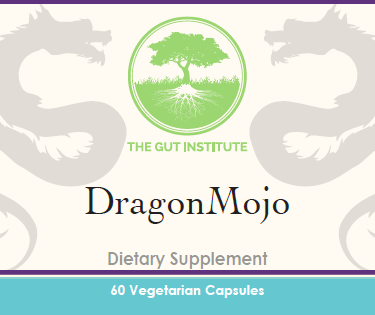
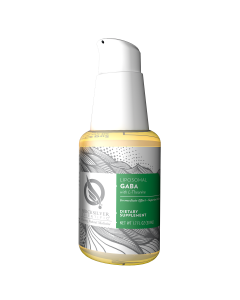
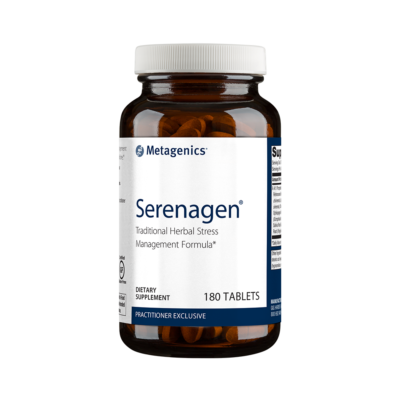
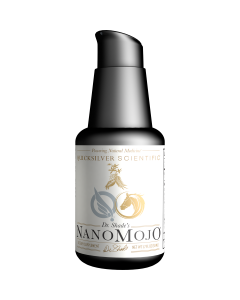
Reviews
There are no reviews yet.